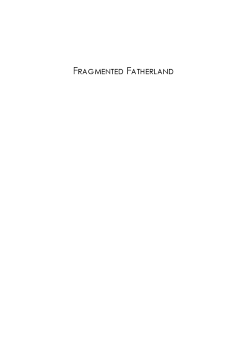
Additional Information
Book Details
Abstract
1945 to 1980 marks an extensive period of mass migration of students, refugees, ex-soldiers, and workers from an extraordinarily wide range of countries to West Germany. Turkish, Kurdish, and Italian groups have been studied extensively, and while this book uses these groups as points of comparison, it focuses on ethnic communities of varying social structures—from Spain, Iran, Ukraine, Greece, Croatia, and Algeria—and examines the interaction between immigrant networks and West German state institutions as well as the ways in which patterns of cooperation and conflict differ. This study demonstrates how the social consequences of mass immigration became intertwined with the ideological battles of Cold War Germany and how the political life and popular movements within these immigrant communities played a crucial role in shaping West German society.
Alexander Clarkson studied Modern History at Balliol College, Oxford, where he completed his doctorate. He is currently Lecturer in the German and European Studies Departments at King’s College London.
“Drawing on a vast number of government records, including the national and local intelligence services as well as extensive press and secondary sources, Clarkson deftly and cogently analyzes the evolution of the FRG's policies, from the conservative front line Cold War state of the 1950s that strongly supported anticommunist immigrants from Eastern Europe and the Balkans to a detente-seeking government in the late 1960s and 1970s that balanced the anti-colonial and anti-authoritarian movements within its borders with its core political and economic interests.” · Choice
“…the case studies of this compelling work illustrate the extent to which demographic structures have impacted the political activism of these immigrants in West Germany… Clarkson’s work opens up new avenues of research on the early Federal Republic, including its history as an immigration country.” · German Studies Review
“…a fine and admirably concise book that can profitably be read by anyone interested in the postwar history of migration in Germany and Europe.” · International Migration Review
“In this very interesting and extremely well-researched book, Alexander Clarkson examines how immigrant political movements interacted with the West German state, found shifting allies in it and were monitored by West German state police and security services… [It] is impressive for breaking the long-standing mould of looking at a single ethnic immigrant population; instead it makes its case by examining how the West German state differentiated between various groups, developing unique, context-specific relationships with each one… This interesting contribution develops the literature on immigration and on postwar political history by drawing on the lessons of their intersection in ways that narrate a fuller picture of postwar European history.” · German History
“The author succeeds in analyzing comprehensively and accurately a very complex topic. In this way he offers a well-informed contribution to the exploration of the history of the Federal Republic and the early ’immigration society’.” · H-Soz-u-Kult
“This is an excellent book, informative as well as thought-provoking. The argument is quite original, embedded in a rich context of political-cultural change over a span of several decades, without overwhelming the reader with party-political detail. The author does a tremendous job of presenting very complex institutional relationships.” · Joyce Marie Mushaben, University of Missouri-St. Louis
